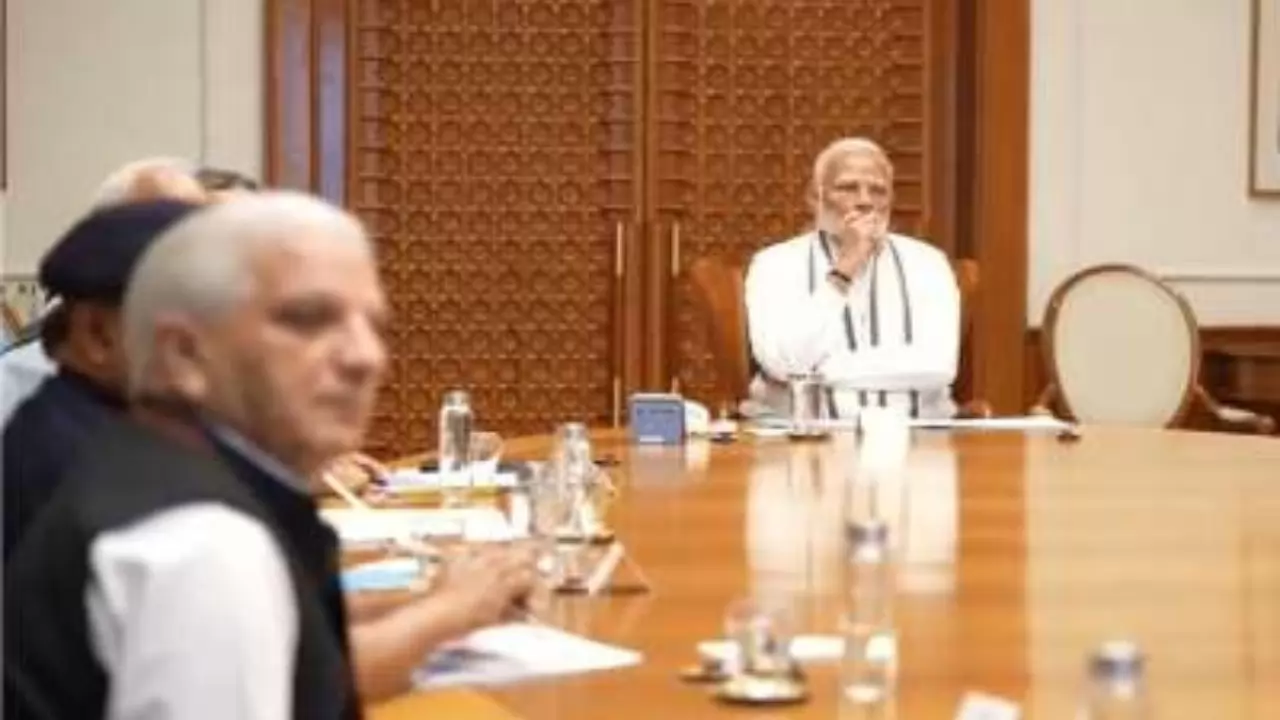
X
With back-to-back meetings to discuss the effects of cyclone Remal on multiple northeastern states and the nation's scorching crisis, Prime Minister Narendra Modi began his post-election program on Sunday. The first meeting's main topics were the cyclone's significant devastation, which included human casualties as well as the widespread landslides and flooding that destroyed homes and other properties.
The current condition of affairs in the concerned states—Mizoram, Assam, Manipur, Meghalaya, and Tripura—was detailed to Prime Minister Modi. The briefing went into detail about the deaths and property damage caused by landslides and floods in these states. In order to restore connectivity, the National Disaster Response Force (NDRF) has been involved in relief operations, including airlifting trapped people, executing evacuations, and clearing roads.
It was brought up during the discussion that the state governments and the ministry of home affairs communicate frequently. According to Prime Minister Modi, the states impacted by Cyclone Remal would continue to get full help from the federal government. He gave the home ministry instructions to keep an eye on things and to assess the case on a regular basis in order to provide the support required for healing.
In a separate meeting, Modi also discussed the state of the existing heat wave and the readiness for the monsoon. He was informed that the monsoon is expected to be normal or above normal in much of the nation and below normal in some areas of Peninsular India, and that the heat wave is expected to persist in some areas of Rajasthan, Gujarat, and Madhya Pradesh.
According to a statement from the Prime Minister's Office, Modi has ordered that regular exercises be conducted to ensure that incidents of fire be prevented and handled appropriately. Regular fire and electrical safety audits need to be conducted in hospitals and other public spaces. Additionally, he stated that scheduled routine exercises for maintaining forest firelines and efficiently using biomass were necessary, according to the announcement.





Copyright © 2026 Top Indian News
